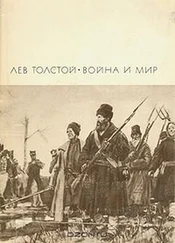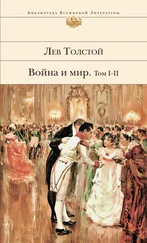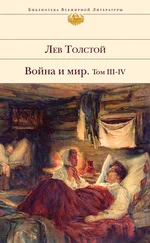| But Kutuzov went on blandly smiling with the same expression, which seemed to say that he had a right to suppose so. |
Но Кутузов кротко улыбался, всё с тем же выражением, которое говорило, что он имеет право предполагать это. |
| And, in fact, the last letter he had received from Mack's army informed him of a victory and stated strategically the position of the army was very favorable. |
Действительно, последнее письмо, полученное им из армии Мака, извещало его о победе и о самом выгодном стратегическом положении армии. |
| "Give me that letter," said Kutuzov turning to Prince Andrew. "Please have a look at it"-and Kutuzov with an ironical smile about the corners of his mouth read to the Austrian general the following passage, in German, from the Archduke Ferdinand's letter: |
- Дай-ка сюда это письмо, - сказал Кутузов, обращаясь к князю Андрею. - Вот изволите видеть. - И Кутузов, с насмешливою улыбкой на концах губ, прочел по-немецки австрийскому генералу следующее место из письма эрцгерцога Фердинанда: "Wir haben vollkommen zusammengehaltene Kr?fte, nahe an 70 000 Mann, um den Feind, wenn er den Lech passirte, angreifen und schlagen zu k?nnen. Wir k?nnen, da wir Meister von Ulm sind, den Vortheil, auch von beiden Uferien der Donau Meister zu bleiben, nicht verlieren; mithin auch jeden Augenblick, wenn der Feind den Lech nicht passirte, die Donau ?bersetzen, uns auf seine Communikations-Linie werfen, die Donau unterhalb repassiren und dem Feinde, wenn er sich gegen unsere treue Allirte mit ganzer Macht wenden wollte, seine Absicht alabald vereitelien. |
| We have fully concentrated forces of nearly seventy thousand men with which to attack and defeat the enemy should he cross the Lech. |
Wir werden auf solche Weise den Zeitpunkt, wo die Kaiserlich-Ruseische Arm?e ausger?stet sein wird, muthig entgegenharren, und sodann leicht gemeinschaftlich die M?glichkeit finden, dem Feinde das Schicksal zuzubereiten, so er verdient". [Мы имеем вполне сосредоточенные силы, около 70 000 человек, так что мы можем атаковать и разбить неприятеля в случае переправы его через Лех. |
| Also, as we are masters of Ulm, we cannot be deprived of the advantage of commanding both sides of the Danube, so that should the enemy not cross the Lech, we can cross the Danube, throw ourselves on his line of communications, recross the river lower down, and frustrate his intention should he try to direct his whole force against our faithful ally. |
Так как мы уже владеем Ульмом, то мы можем удерживать за собою выгоду командования обоими берегами Дуная, стало быть, ежеминутно, в случае если неприятель не перейдет через Лех, переправиться через Дунай, броситься на его коммуникационную линию, ниже перейти обратно Дунай и неприятелю, если он вздумает обратить всю свою силу на наших верных союзников, не дать исполнить его намерение. |
| We shall therefore confidently await the moment when the Imperial Russian army will be fully equipped, and shall then, in conjunction with it, easily find a way to prepare for the enemy the fate he deserves. |
Таким образом мы будем бодро ожидать времени, когда императорская российская армия совсем изготовится, и затем вместе легко найдем возможность уготовить неприятелю участь, коей он заслуживает".] |
| Kutuzov sighed deeply on finishing this paragraph and looked at the member of the Hofkriegsrath mildly and attentively. |
Кутузов тяжело вздохнул, окончив этот период, и внимательно и ласково посмотрел на члена гофкригсрата. |
| "But you know the wise maxim your excellency, advising one to expect the worst," said the Austrian general, evidently wishing to have done with jests and to come to business. |
- Но вы знаете, ваше превосходительство, мудрое правило, предписывающее предполагать худшее, -сказал австрийский генерал, видимо желая покончить с шутками и приступить к делу. |
| He involuntarily looked round at the aide-de-camp. |
Он невольно оглянулся на адъютанта. |
| "Excuse me, General," interrupted Kutuzov, also turning to Prince Andrew. "Look here, my dear fellow, get from Kozlovski all the reports from our scouts. |
- Извините, генерал, - перебил его Кутузов и тоже поворотился к князю Андрею. - Вот что, мой любезный, возьми ты все донесения от наших лазутчиков у Козловского. |
| Here are two letters from Count Nostitz and here is one from His Highness the Archduke Ferdinand and here are these," he said, handing him several papers, "make a neat memorandum in French out of all this, showing all the news we have had of the movements of the Austrian army, and then give it to his excellency." |
Вот два письма от графа Ностица, вот письмо от его высочества эрцгерцога Фердинанда, вот еще, -сказал он, подавая ему несколько бумаг. - И из всего этого чистенько, на французском языке, составь mеmorandum, записочку, для видимости всех тех известий, которые мы о действиях австрийской армии имели. Ну, так-то, и представь его превосходительству. |
| Prince Andrew bowed his head in token of having understood from the first not only what had been said but also what Kutuzov would have liked to tell him. |
Князь Андрей наклонил голову в знак того, что понял с первых слов не только то, что было сказано, но и то, что желал бы сказать ему Кутузов. |
| He gathered up the papers and with a bow to both, stepped softly over the carpet and went out into the waiting room. |
Он собрал бумаги, и, отдав общий поклон, тихо шагая по ковру, вышел в приемную. |
| Though not much time had passed since Prince Andrew had left Russia, he had changed greatly during that period. |
Несмотря на то, что еще не много времени прошло с тех пор, как князь Андрей оставил Россию, он много изменился за это время. |
| In the expression of his face, in his movements, in his walk, scarcely a trace was left of his former affected languor and indolence. He now looked like a man who has time to think of the impression he makes on others, but is occupied with agreeable and interesting work. |
В выражении его лица, в движениях, в походке почти не было заметно прежнего притворства, усталости и лени; он имел вид человека, не имеющего времени думать о впечатлении, какое он производит на других, и занятого делом приятным и интересным. |
| His face expressed more satisfaction with himself and those around him, his smile and glance were brighter and more attractive. |
Лицо его выражало больше довольства собой и окружающими; улыбка и взгляд его были веселее и привлекательнее. |
| Kutuzov, whom he had overtaken in Poland, had received him very kindly, promised not to forget him, distinguished him above the other adjutants, and had taken him to Vienna and given him the more serious commissions. |
Кутузов, которого он догнал еще в Польше, принял его очень ласково, обещал ему не забывать его, отличал от других адъютантов, брал с собою в Вену и давал более серьезные поручения. |
| From Vienna Kutuzov wrote to his old comrade, Prince Andrew's father. |
Из Вены Кутузов писал своему старому товарищу, отцу князя Андрея: |
| Your son bids fair to become an officer distinguished by his industry, firmness, and expedition. |
"Ваш сын, - писал он, - надежду подает быть офицером, из ряду выходящим по своим занятиям, твердости и исполнительности. |
| I consider myself fortunate to have such a subordinate by me. |
Я считаю себя счастливым, имея под рукой такого подчиненного". |



